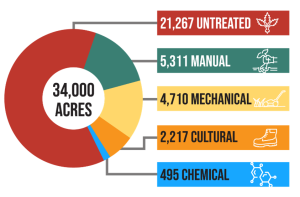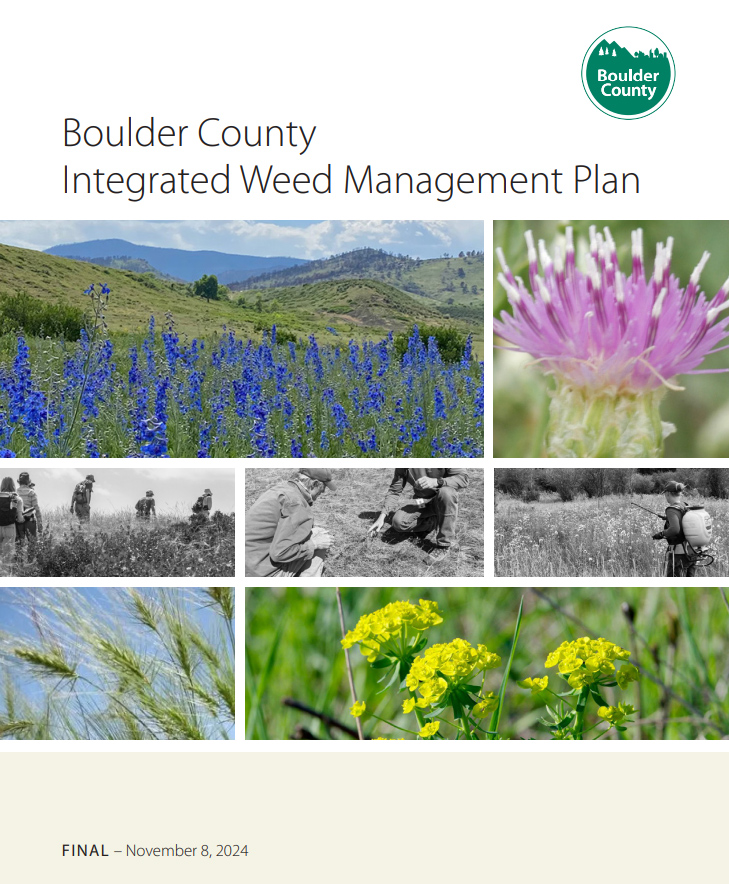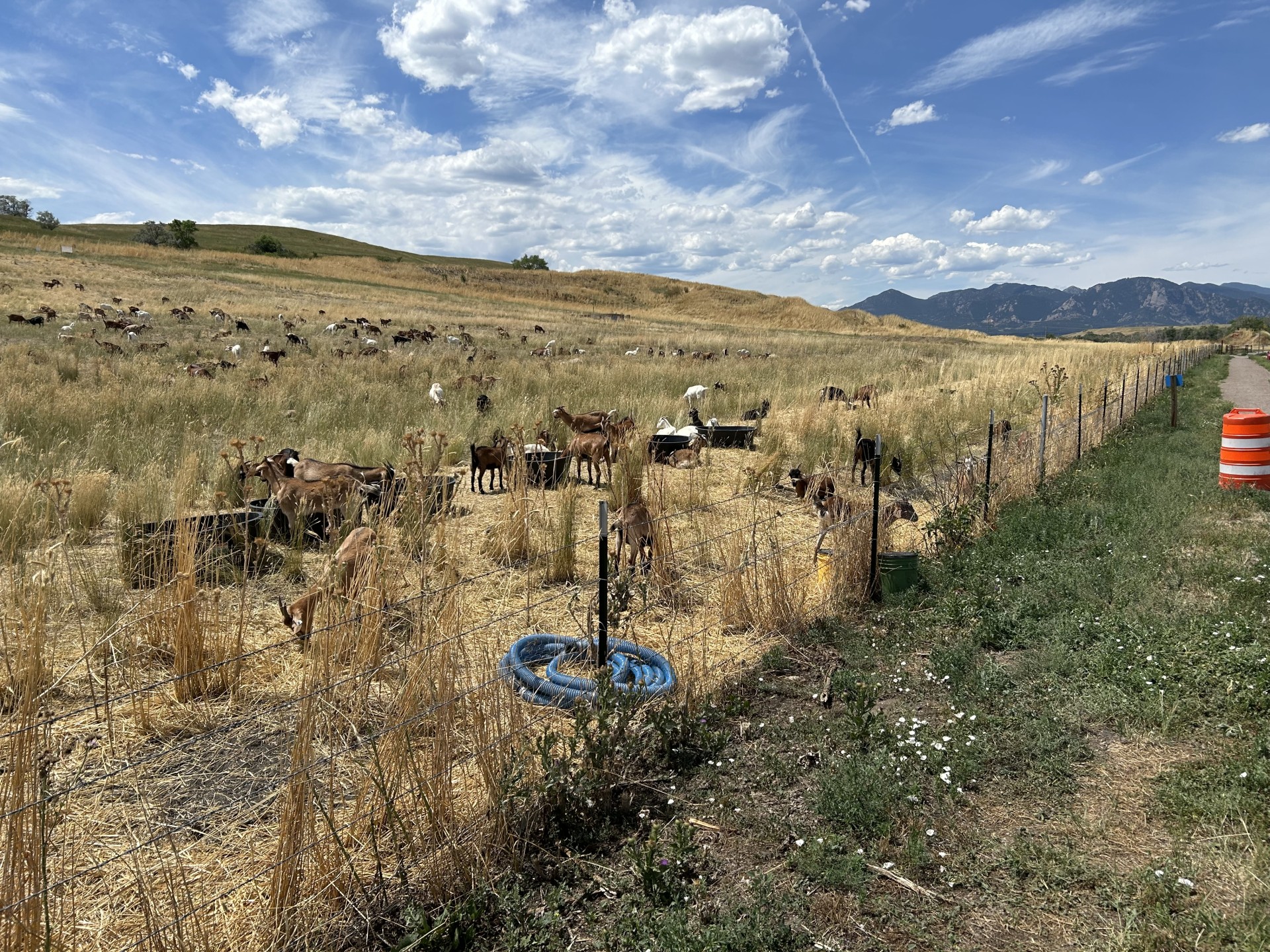A range of pilot projects are being implemented to evaluate the effectiveness of select noxious weed management treatments and their applicability to natural lands.
Hand Digging List A Species
In 2023, a pilot project began testing mechanical methods for removing Hairy willowherb at Pella Ponds, the location of one of the infestations of this Eradicate species. The pilot project testing the effectiveness of hand digging Hairy willowherb is a three-year volunteer pilot effort that began in 2023.
Steam Weeding
A steam weeding pilot project will be initiated at the Ron Stewart Preserve at Rabbit Mountain trailhead to test effectiveness of this tool for total and targeted vegetation management. If it is determined to be feasible and scalable, second priority locations are the Walker Ranch Loop and Ethel Harrold trailheads, followed by the LoBo Regional Trail.
Soil Amendment
Soil amendment for cheatgrass control in a High Biodiversity Area will be trialed at Walker Ranch. Test plots will be monitored and evaluated. If the method is determined to be effective and scalable, expansion to other locations will be evaluated.
Goat Browsing
Goat browsing for suppression of broadleaf noxious weeds will be evaluated for effectiveness and scalability through pilot projects at locations on the following properties:
- Harney-Lastoka
- Keyes
- Bailey-Kenosha
- Wildview (Hillcrest Heights).
All these properties fall outside the Bighorn sheep protection area.
Weed Warriors
The
Weed Warriors volunteer program at Walker Ranch began in 2024. The program uses volunteers in controlling invasive weeds manually without using herbicides. Volunteers work on a one-mile section along the Walker Ranch Loop trail with a 5-year time horizon. At each visit (minimum 3 per year), they pull invasive weeds, check specific points in their designated area, and fill out a simple form with the data.





